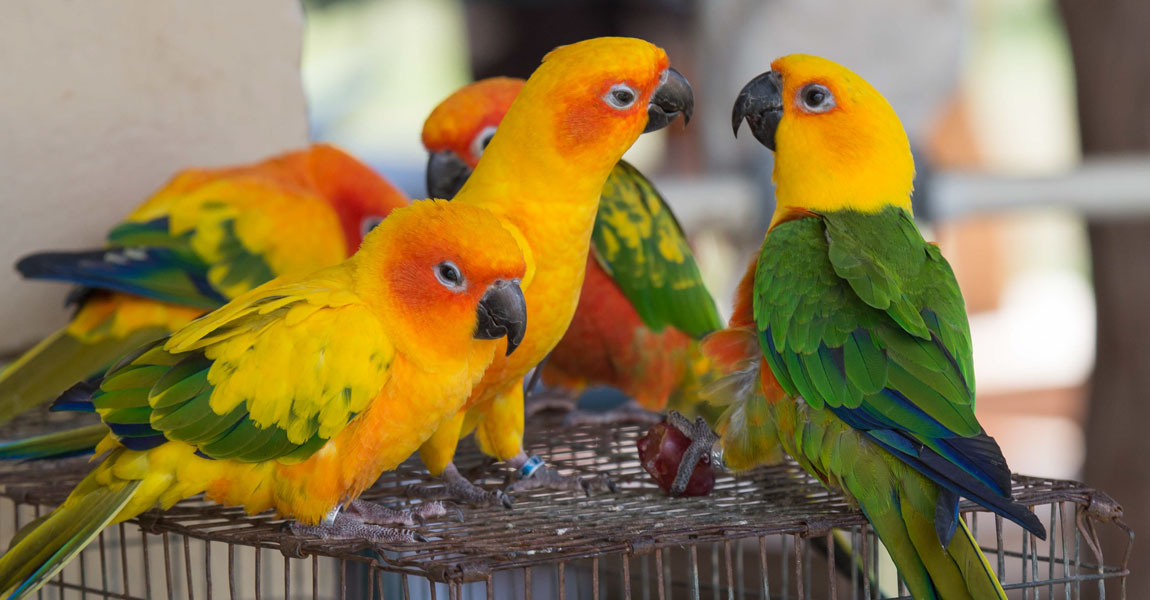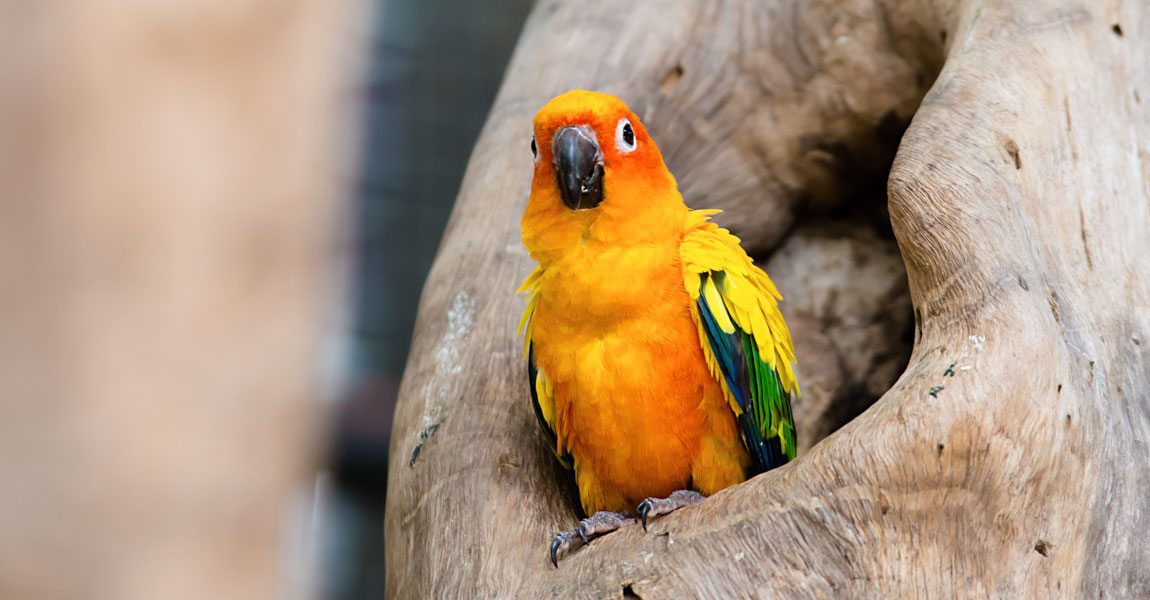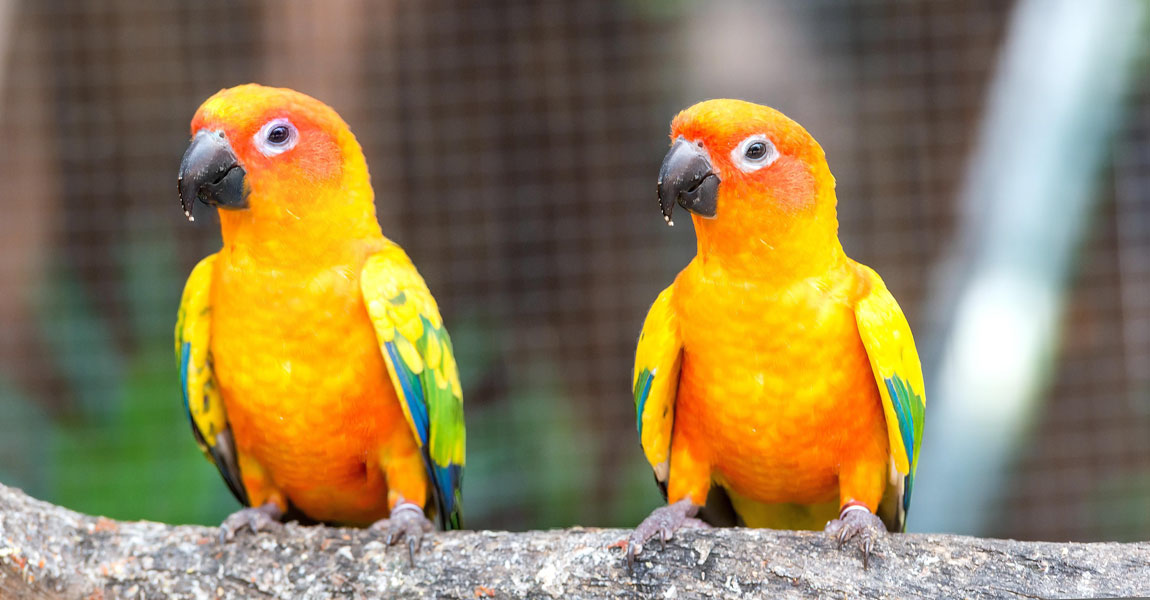If you’re looking for a playful, active parrot with plenty of personality, the conure may seem like the perfect bird for you. It is a good idea, however, to consider the conure’s unique behavior and requirements before adopting one. These birds can live up to 30 years and require lots of attention, but in return, they’ll give you plenty of love, affection, and entertainment.
Embracing Conure Behavior
Determine if you’re willing to take on a 20 to 30 year commitment. Conures can live between 20 and 30 years in captivity. Do not adopt one if you are not willing to make a long-term commitment to caring for one. If you expect to move or change lifestyles in the next few years, a conure may not be the right bird for you.Pick a conure if you like social birds. Conures have playful, clownish, and affectionate personalities. While some may not want to be touched, many enjoy sitting on their owner’s shoulders and cuddling up to their face.
Determine how much noise you can handle. While conures do not talk as much as other types of parrots, they do squawk. They can sometimes express themselves through a series of loud, screeching calls. If you prefer a quiet home, a conure may not be the right pet for you.
Prepare for plenty of chewing. Conures explore everything with their beak. If you get a conure, you will need to keep them stocked with plenty of chew toys, like wooden blocks and vine balls. Keep in mind that even if you give the conure toys, they may still chew on your furniture and clothing.
Learn to live with nipping. When a conure is stressed, tired, afraid, or annoyed, they may nip people. While excessive nipping should not be tolerated, you may have to put up with a little nipping, especially while you are training the bird.
Fitting the Bird into Your Lifestyle
Inspect your home to see if it is bird friendly. While conures can live in cages, they will need time outside of their cage every day to stretch their wings. Before this happens, you may need to bird proof your home.There should be no exposed electrical wires that they can chew.
Windows and mirrors should be covered so that your conure does not fly into them.
Fans must be turned off and windows closed while the conure is out playing.
Long cords and heavy drapes can strangle or suffocate birds.
Remove any plants that are toxic to birds, such as foxglove, elephant's ear, lily of the valley, or oleander.
Put away anything valuable that you do not want chewed.
Measure how much space you have. Conures need a cage that is at least 24 inches (61 cm) wide, 18 inches (46 cm) long, and 24 inches (61 cm) high. This should be located somewhere with lots of activity, such as a living room. Measure out a place where you can put the cage.
Factor in how long you can spend at home. Conures love activity, and they thrive when there are people around. You should be able to spend several hours a day at home socializing with the conure. If you work long hours, a conure may not be the right pet for you.
Take your family into consideration. Conures are great family birds as they love the bustle of a busy household. Just make sure to teach your children how to properly handle a conure. Keep in mind that if the children frightens or hurts the conure, the conure may nip the child, but this should not harm the child.
Other pets, such as cats and dogs, must also be carefully watched. If your other pets are aggressive towards small animals, a conure may not be a good addition to the household.
Keep in mind that a bird might not be an ideal pet if someone in the house has a weak immune system or is on chemotherapy. Conures can carry infection without being sick themselves, and could pose a risk to someone without a strong immune system.
Choosing the Right Type of Conure
Research different varieties of conure. There are over 40 different varieties of conure. Each variety has unique markings, and some may have different temperaments. Look into different species of conure to find the right one for you.Common pet varieties include:
Sun conures
Green-cheeked conures
Nanday conures
Dusky conures
Jenday conures
Mitred conures
Pick a sun conure if you’re looking for beautiful plumage. Sun conures are stunning creatures prized for their orange, yellow, and green feathers. These show-stoppers are also the most common type of conure, so they are easy to find and purchase. They are, however, one of the chattier varieties of conure.
Select a green-cheeked or dusky conure if you want a quieter bird. Green-cheeked and dusky conures are some of the quieter types of conure. While they likely won’t learn how to talk, they are very energetic. They can provide you with the endless fun of a conure without as much noise.
Adopt a nanday conure only if you live in a house. Nanday conures are extremely hardy birds who can adapt well to different environments. They are, however, one of the loudest varieties of conure. Do not adopt one if you live in a shared space, such as an apartment building.
Choose a mitred conure if you want to teach it how to talk. While conures may not be as good at speaking as some other types of parrots, a mitred conure may be able to learn human words more easily than other types of conures. These red-headed conures are extremely energetic, however, and will require more daily stimulation.





